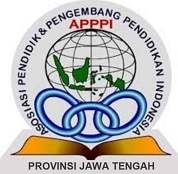Peningkatan Hasil Belajar Lari Jarak Pendek Melalui Pembelajaran Permainan Tradisional Siswa Kelas X SMA Negeri 11 Semarang
Abstract
Keywords
Full Text:
PDFReferences
Anggraeni, C. S., Nurwansyah, R., & Yuda, A. K. (2021). Tingkat Pengetahuan Pembelajaran Atletik Lari Jarak Pendek Pada Siswa Sekolah Menengah Atas Kelas XII. Jurnal Ilmiah Wahana Pendidikan, 7(8), 680–690. https://doi.org/10.5281/zenodo.5804633
Elfina, J., Hala, Y., & Herawati. (2023). Implemtasi Model PjBL (Projek Based Learning) dengan Pendekatan CRT (Culturally Responsive Teaching) Terhadap Hasil Belajar Biologi di Kelas X2 UPT SMA Negeri 10 Makassar. Jurnal Pemikiran Dan Pengembangan Pembelajaran, 5(3), 596–603. https://edukatif.org/index.php/edukatif/article/view/5294/pdf
Hilmy, F. R. (2023). Pengaruh Permainan Modifikasi Tic-Tac-Toe Dan Catch & Rush Terhadap Hasil Belajar Lari Jarak Pendek Siswa Sma Negeri 1 Comal. Seminar Nasional Ke-Indonesiaan VIII, 8(11), 1108–1115.
Khalisah, H., Firmansyah, R., Munandar, K., & Kuntoyono, K. (2023). Penerapan PjBL (Project Based Learning) dengan Pendekatan CRT (Culturally Responsive Teaching) untuk Meningkatkan Hasil Belajar Siswa Pada Materi Bioteknologi Kelas X-7 SMA Negeri 5 Jember. Jurnal Biologi, 1(4), 1–9. https://doi.org/10.47134/biology.v1i4.1986
Lasminawati, E., Kusnita, Y., & Merta, I. W. (2023). Meningkatakan Hasil Belajar dengan Pendekatan Pembelajaran Culturally Responsive Teaching Model Probem Based Learning. Journal of Science and Education Research, 2(2), 44–48. https://doi.org/10.62759/jser.v2i2.49
Mardius, A., Enjoni, & Fuadi, A. B. (2022). PENGARUH KECERDASAN EMOSIONAL TERHADAP HASIL BELAJAR PENDIDIKAN JASMANI PADA MASA PANDEMI. Jurnal Muara Olahraga, 4(2), 39–46.
Muhajir. (2017). Pendidikan Jasmani, Olahraga, dan Kesehatan. KEMENTERIAN PENDIDIKAN DAN KEBUDAYAAN REPUBLIK INDONESIA.
Nurliani, N. (2024). Peningkatan Hasil Belajar PJOK Materi Lari Jarak Pendek dengan Menggunakan Pendekatan Bermain. Global Journal Sport Science, 1(1), 293–297.
Pratikta, G. C., & Hartadi, S. C. Y. (2018). Pengaruh Modifikasi Permainan Softball terhadap Minat Siswa dalam Pembelajaran Pendidikan Jasmani, Olahraga dan Kesehatan. In Jurnal Pendidikan Olahraga dan Kesehatan (Vol. 6, Issue 2, pp. 463–468).
Rohmah, L., & Muhammad, H. N. (2021). Tingkat Kebugaran Jasmani dan Aktivitas Fisik Siswa Sekolah. Jurnal Universitas Negeri Surabaya, 09(01), 511–519.
Sari, A., Sari, Y. A., & Namira, D. (2023). Penerapan Model Pembelajaran Problem Based Learning Terintegrasi Culturally Responsive Teaching (Crt) Untuk Meningkatkan Motivasi Dan Hasil Belajar Siswa Kelas X IPA 2 SMA Negeri 7 Mataram Pada Mata Pelajaran Kimia Tahun Ajaran 2022/2023. Jurnal Asimilasi Pendidikan, 1(2), 110–118. https://doi.org/10.61924/jasmin.v1i2.18
DOI: https://doi.org/10.26877/mpp.v19i1.21578
Refbacks
- There are currently no refbacks.

This work is licensed under a Creative Commons Attribution-ShareAlike 4.0 International License.








